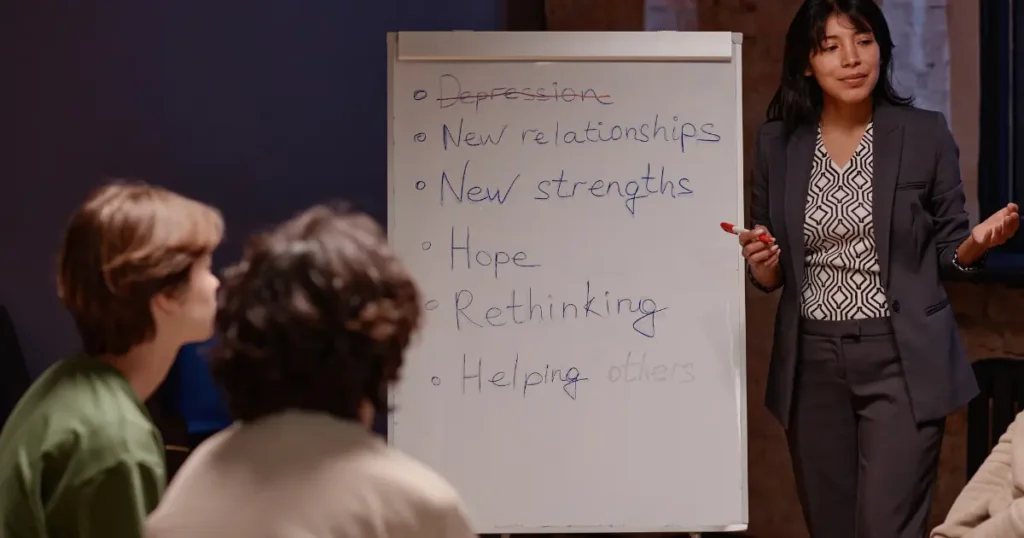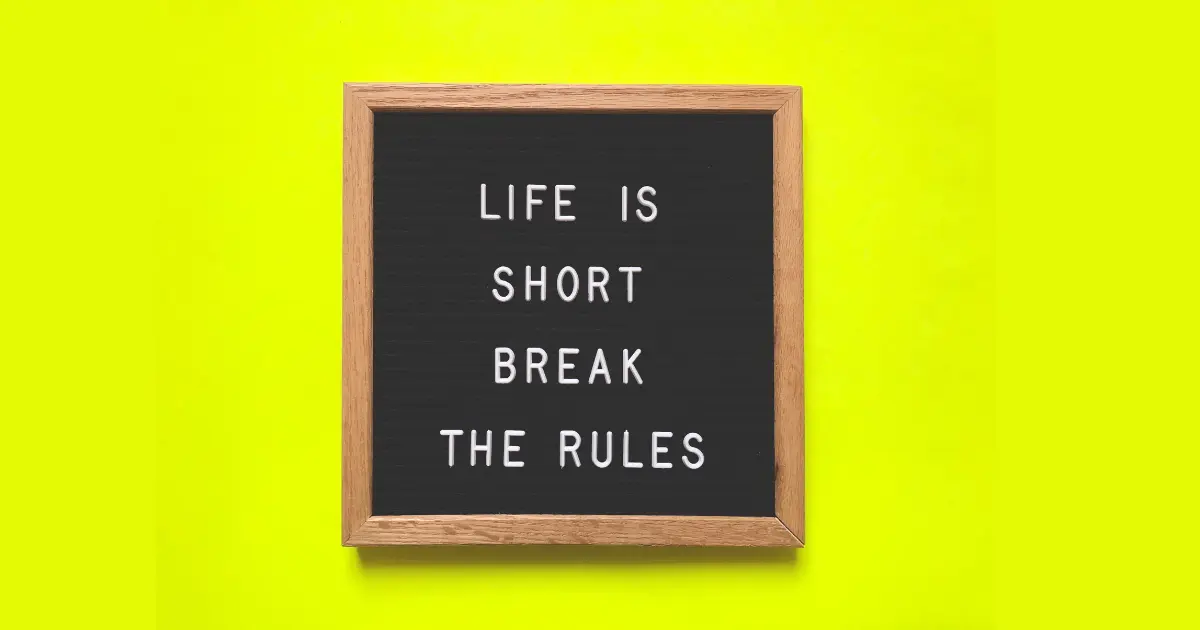Mindsets of Learners Vs. Judging Mindsets: Tapping into the Potential of Your Learning Method of Choice

Introduction
Our modern world is fast-paced, and how we approach learning can dramatically affect both personal and skillful improvement. Some may possess an innate learning mentality that embraces challenges as opportunities while recognizing failure as learning experiences; others may succumb to rigid mindsets where criticism hinders progress instead of helping it along. What are these differences, and how do they impact interactions and learning processes? In this comprehensive guide, we explore learner vs judger mindsets and help maximize potential by understanding key differences between them.
We aim to answer common questions about different mindsets, such as the learner vs judger mindsets, by providing useful information and concrete methods to develop an enlightened outlook on learning. So whether you are an instructor, student, or anyone just wanting to foster positive attitudes toward education, read this post carefully so you know which approach could lead you to greater success!
Understanding Learner vs Judger Mindsets

A learner mentality, within the context of learner vs judger mindsets, refers to taking an active approach to learning and development. Individuals in this mindset see difficulties as opportunities to grow, are open to criticism, accept failure as learning experiences, are curious, and ask questions that help them comprehend more quickly while adapting well to various circumstances.
Judger Mindset
A judger mindset, in contrast to the learner vs judger mindsets, may be self-limiting. People with this approach tend to focus on criticism and evaluation instead of readily accepting innovative concepts. They resist feedback because it could be seen as an attack against themselves or on collaborative initiatives that encourage creativity and innovation. This closed approach may hinder personal development and collaborative initiatives that foster creativity and innovation, restricting personal and collaborative development efforts while impeding creativity and innovation.
Mindset and Learning
Our mindsets, including the learner vs judger mindsets, impact many aspects of life, including how we interact with other people, work collaboratively, and cope with difficulties. A study published in the Journal of Educational Psychology demonstrated that those who possessed an attitude of learning displayed greater perseverance and resilience when faced with difficulties, which ultimately translated to higher academic results.
Key Differences in Impact:
| Aspect | Learner Mindset | Judger Mindset |
|---|---|---|
| Openness to Feedback | Welcomes and seeks feedback | Avoids or reacts defensively to feedback |
| Approach to Failure | Views failure as a learning opportunity | Sees failure as a personal defect |
| Adaptability | Flexible and adaptable in changing scenarios | Rigid and resistant to change |
| Collaboration | Engages and collaborates with others | Separates and evaluates critically |
| Curiosity | Eager to explore and ask questions | Satisfied with surface-level understanding |
Frequently Asked Questions (FAQs)
What Is Learner Mindset? A learner mindset, in the context of learner vs judger mindsets, gives people a mental model for accepting life’s challenges while continuing their educational pursuits. Learners’ motivation comes from continually wanting to expand and explore opportunities for improvement and personal development.
What Is a Judger Mindset? In contrast to this definition, a judger mindset, in the context of learner vs judger mindsets, entails taking an overtly critical stance towards situations. People in such a mindset frequently use labels and make judgments against both themselves and other individuals before becoming obsessed over perceived shortcomings that restrict growth.
What steps can I take to move away from a Judger’s Mindset towards an Acceptant Learning Perspective?

Shifting away from learner vs judger mindsets to acceptance takes practice in self-reflection and experimentation – these may include ways of:
- Recognize Judgements: Step one is to become aware of where you make critical or dismissive judgments of yourself or other people. Then, use “Ask Questions” to replace these with questions that generate curiosity (e.g., “What can I gain from this experience?”).
- Learn from feedback. Utilize constructive criticism as a means for development rather than an attack mechanism.
- Practice Mindfulness: Meditation practices, which enable you to become aware of how thoughts and attitudes impact studying, can help increase consciousness of self.
- Create goals that emphasize growth rather than perfection: Intentionally set goals that emphasize development rather than perfection.
What Are the Advantages of Adopting a Learner Mindset?
A learner mindset, particularly in the context of learner vs judger mindsets, promotes agility, creative thinking, and determination—necessary in today’s fast-paced environment. Studies have indicated that those who adopt such an outlook often outperform others who lack one.
Motivation and engagement can be increased. There will be a slight enhancement in skills in problem-solving abilities, increased collaboration, capacity, and ability, as well as overall satisfaction from living an accomplished and fulfilling life and higher overall levels of fulfillment both personally and professionally.
Why Does Mindset Impact Teamwork?
Learning mindsets, especially in the context of learner vs judger mindsets, encourage cooperation, communication openness, and innovation within groups of workers. Teams led by leaders with this mindset typically enjoy higher morale and increased productivity, whereas having leaders who take an adversarial or judgmental stance often leads to conflicts, miscommunication, misunderstanding, and lessened performance due to creating hostile conditions within an office or team setting.
Strategies for Fostering a Learner Mindset
Implement some or all of the following techniques to foster an environment in which learners take charge of their learning experiences.
- Encourage Questions Over Answers. Build a society that values queries. Recast “I know” with “What If?” to foster curiosity and enhance discovery.
- Create an Inclusive Culture. Encouraging feedback will promote more participation from team members and make criticism easier to accept and respond to.
- Celebrate Your Growth. Instead of only acknowledging achievements, celebrate the process of growth itself by acknowledging efforts, progress, and lessons acquired over time.
- Engage in Reflective Activities: Allow yourself time for self-reflection after each project or assignment has been completed. Consider what lessons have been learned and how you could implement these into future initiatives, thus increasing the value of experience.
- Utilize Collaborative Learning. Let us show you how collaborative learning can lead to group projects, workshops, or even discussions that bring people together in learning environments free from judgment while encouraging the sharing of growth experiences between colleagues.
Conclusion
Understanding the difference between learner vs judger mindsets is vital when seeking personal or skillful development. Adopting a learner mindset allows individuals to discover new possibilities, strengthen interpersonal relations, and establish more of a collaborative environment at work or in academic situations—be mindful that your attitude today could determine its effect in the future!
Transitioning from a judge mindset to one of learning can be challenging; however, its rewards make the effort worthwhile. By encouraging curiosity, accepting challenges with open arms, and viewing feedback as opportunities for development, you will embark on a journey toward continuous growth and accomplishment.
Related Resources
- Mindset Research by Carol Dweck: Explore the foundational concepts of growth and fixed mindsets. Mindset: The New Psychology of Success
- The Power of Believing You Can Improve: Understand how a growth mindset enhances learning and resilience. American Psychological Association




